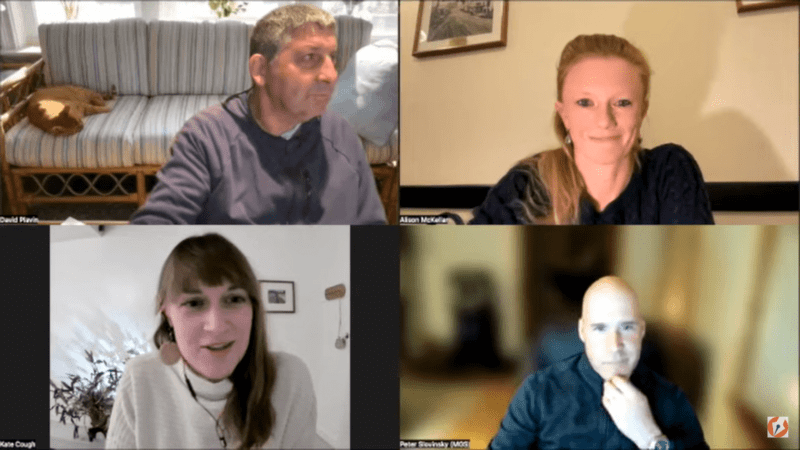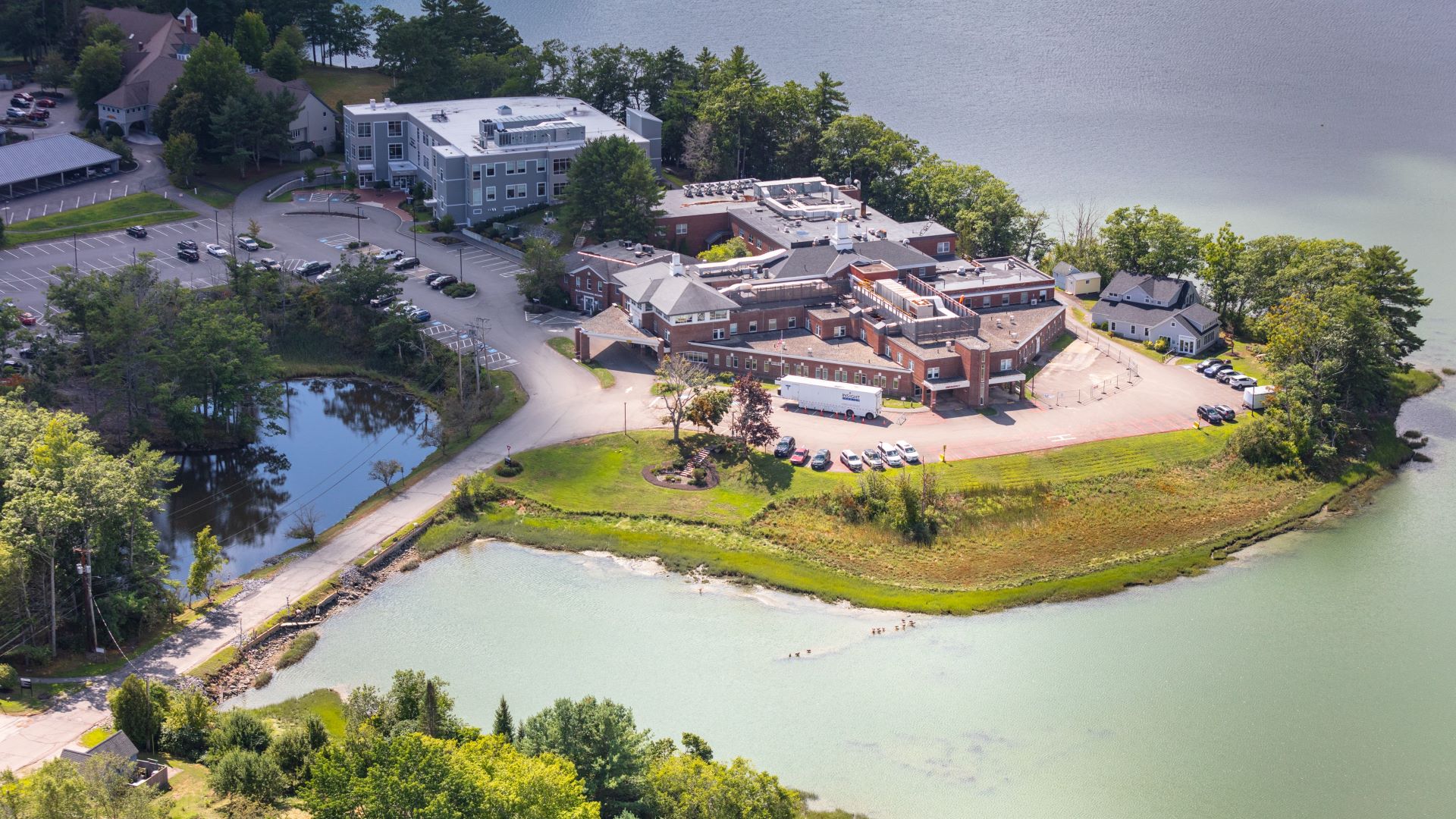As the Dec. 23, 2022 storm bore down on Maine, David Plavin decided to play it safe and evacuate for the night from his oceanfront house in the Camp Ellis neighborhood of Saco. His neighbors took photos showing water pouring off his roof above the front door as huge waves shook his home. When he returned the next day, he found cracks in his walls from the force of the storm surge.
The storm caused the fourth-highest water level in Portland since 1912, according to marine geologist Peter Slovinsky of the Maine Geological Survey.
He and Plavin were part of a virtual Maine Monitor panel event Thursday night, a follow to the “Unstoppable Ocean” series reported by this newsletter’s lead author Kate Cough. Kate and her panelists summed up the effects of the Dec. 23 storm and what it illustrates about the effects of sea level rise on Maine’s coasts.
RELATED: The Unstoppable Ocean: 10 stories from the edge of Maine
Camden select board member Alison McKellar, also a panelist, has spent years documenting local flooding events on her town’s waterfront. To her, this storm felt like a big one. Watch her video footage of its effects.
“Instead of the seaweed in the parking lot like we normally have when it floods, there were nails and boards,” she said. “The benches here in Harbor Park, instead of just flooding, they got knocked off of their bases and were floating around. It was the first time I felt like it wouldn’t be safe for me to go and try to stop something from getting washed away.”
Slovinsky said this recent storm was a sou’easter, a kind of storm that makes a more direct hit than a nor’easter would on places like Camden Harbor or Ocean Park in Old Orchard Beach — just because of the way they face onto the sea.
He said he’s interested in further study of whether sou’easters are becoming more common in Maine, which would pose added problems on a coastline that’s hardened mostly against nor’easters.
“The areas that aren’t conditioned or are exposed to those southeast winds are going to have much more damage than they would in a nor’easter, when the wind is blowing offshore,” Slovinsky said.
On the whole, Kate’s reporting and other research tells us that human-caused carbon emissions are warming our atmosphere and oceans, causing sea levels to rise and storms to become more frequent and intense.
While we can’t attribute any one weather event to climate change without more modeling to see whether it would have happened absent any other factors, we can say with confidence that these extreme events will happen more often.
There’s a great Scientific American piece out now about rethinking the words we use to talk about climate change. One of their suggestions: say “human-caused disasters,” not “natural disasters,” which some may equate with acts of God or the randomness of nature. In a world that’s warming because of human activity, many extreme weather events are increasingly human-made.
Other effects of these disasters have clear human causes, too. David Plavin, the Camp Ellis resident, is a vice president of the Saco group Save Our Shores. They advocate for fixes to beach erosion that’s been worsened by the long jetty at the end of the Saco River, built 150 years ago by the Army Corps of Engineers.
Asked at Thursday’s panel about the prospect of managed retreat from a neighborhood that deals with frequent storm damage and has lost 38 house lots over the years due to erosion, Plavin said it’s always a possibility on the horizon — but an incredibly hard one that some local officials in Saco are not willing to consider seriously yet.
“The idea that keeps it going is that there’s this thought that Camp Ellis can be reborn or revitalized and provide a lot of economic gain to the city of Saco,” he said. “I don’t know where you draw the line to just give up and let it be taken away, or keep fighting for it. And the attitude down here has been to fight for it.”
And, as Slovinsky added, the erosion damage isf not Camp Ellis’s fault — and it’s not solely the result of humans’ emissions that have worsened the impacts of extreme weather on Maine’s coast.
“Camp Ellis did not do this to themselves, and that’s a really important point to make,” said Slovinsky. “All the beaches in Saco Bay erode to a certain point, but the erosion that’s seen in Camp Ellis is explicitly exacerbated by the jetty that’s there.”
In late December, around the same time as this recent storm, Congress approved $45 million to replenish Saco’s beaches and add a protective spur to the offending jetty. Plavin said he wants to see those solutions attempted before he considers walking away from his coastal community.
For more on the Dec. 23 storm, see this video by resident John Pani, who captured the fierce waves crashing along Willard Beach in South Portland.
RESOURCES: Check out Peter Slovinsky’s resources for homeowners and others interested in combatting and adapting to erosion: Here are some resources to learn more about coastal erosion in Maine




